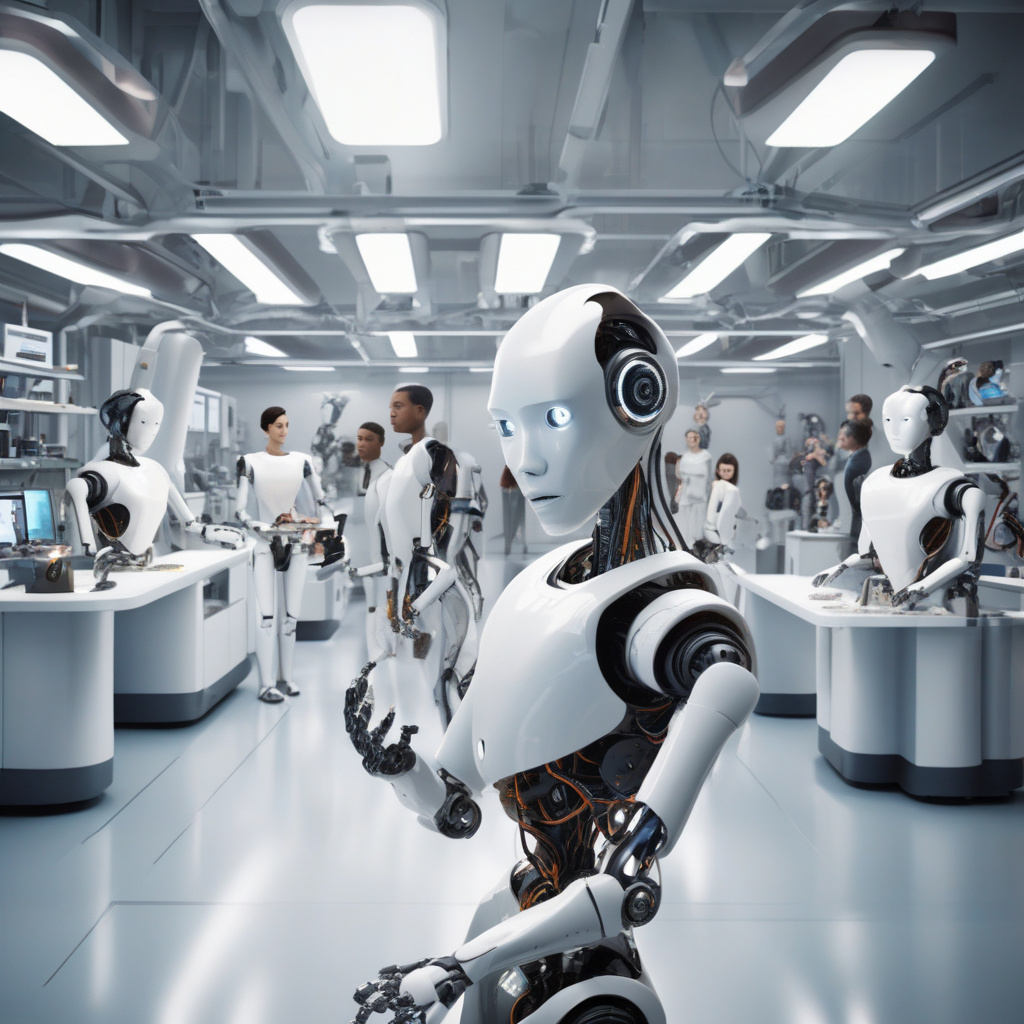Is the UK Falling Behind in Robotics and AI? Make UK Warns
In a recent report by Make UK, a concerning trend has been highlighted – the UK is slipping perilously behind its global counterparts in the adoption of robotics and artificial intelligence (AI). This lag not only threatens to impede technological progress but also poses a significant risk to the nation’s economic growth, potentially resulting in the loss of billions of pounds.
At the heart of this issue lies the pivotal role that robotics and AI play in driving innovation, efficiency, and competitiveness across industries. From manufacturing to healthcare, logistics to finance, the integration of these advanced technologies has become a cornerstone of success in the modern digital landscape. Failure to keep pace could mean missed opportunities for growth, productivity, and job creation.
Take, for instance, the transformative impact of robotics in manufacturing processes. Automated systems streamline production, reduce errors, and enhance output quality. Countries like Germany, Japan, and the United States have made significant strides in implementing robotics on factory floors, gaining a competitive edge in efficiency and output. In contrast, the UK’s slower uptake puts local industries at a disadvantage, potentially hampering their ability to compete on a global scale.
Similarly, AI-driven technologies are reshaping business operations, customer experiences, and decision-making processes. From predictive analytics to personalized recommendations, AI offers a wealth of possibilities for companies looking to optimize their strategies and offerings. By falling behind in AI adoption, the UK risks losing ground to countries that leverage these technologies to drive innovation and growth.
The implications of this lag extend beyond individual businesses to the broader economy. A failure to embrace robotics and AI not only stifles innovation but also hampers the nation’s ability to attract investment, foster entrepreneurship, and create high-value jobs. As global markets increasingly prioritize digital transformation, the UK’s reluctance to embrace these technologies could result in a significant economic shortfall.
To address this critical issue, concerted efforts are needed from policymakers, industry leaders, and educational institutions. Investing in research and development, fostering a culture of innovation, and upskilling the workforce are essential steps to bridge the gap and ensure the UK remains competitive in the global arena of robotics and AI.
In conclusion, the warning from Make UK serves as a wake-up call for the nation to reevaluate its approach to technology adoption. Embracing robotics and AI is not just about staying current; it is about securing a prosperous future for the economy, businesses, and society as a whole. The time to act is now, before the cost of falling behind becomes insurmountable.

